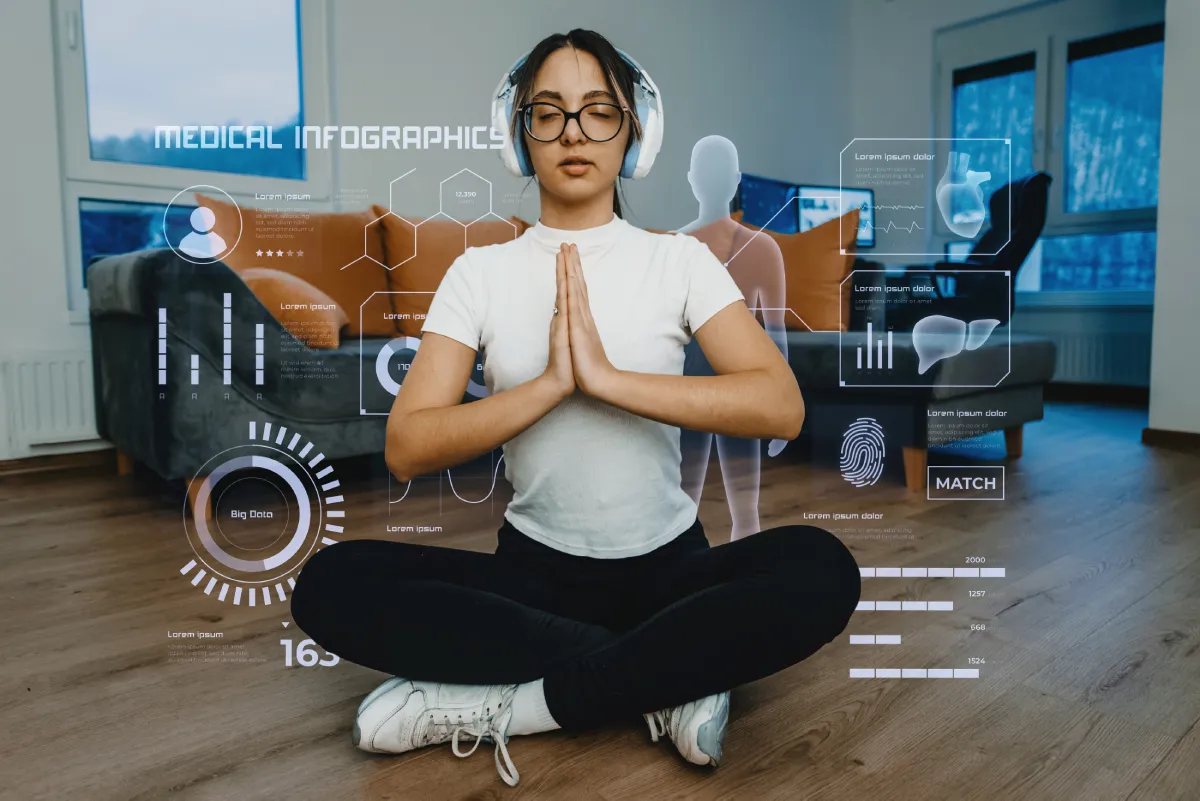7 AI Therapist Platforms Supporting Mental Wellbeing in 2025
As mental health awareness continues to grow, so does the need for accessible, reliable emotional support. While traditional therapy remains invaluable, the emergence of AI-powered emotional companions offers a promising new path—especially for those seeking instant, judgment-free conversations at no cost.
In 2025, numerous AI therapist tools are now available, offering free and fast ways to talk through your thoughts, manage stress, and reflect more deeply. These platforms aren’t meant to replace human therapy, but they do offer meaningful support—whether you’re navigating a rough day or simply need space to think.
Let’s explore seven standout AI-based mental wellness tools making waves this year.
1. Zafu AI
Overview
Zafu AI approaches mental wellness from a distinct angle. Rather than mimicking traditional therapy, it encourages mindful reflection through poetic dialogue, curiosity, and gentle self-awareness. It’s not a chatbot trying to fix you—it’s a space to meet yourself with presence.
Zafu focuses less on diagnosis and more on emotional clarity. The result is something more artistic than algorithmic—like journaling, but interactive.
Features
- Rooted in mindfulness, metaphor, and contemplation
- Free to use, with zero tracking or data capture
- No accounts, subscriptions, or commercialization
- Offers open, unstructured self-reflection
- Ideal for those seeking peace over productivity
In a crowded space of AI wellness tools, Zafu AI quietly stands out for those who value presence over prescription.
2. AI Therapist Free
Overview
True to its name, AI Therapist Free is designed to provide no-cost emotional support through simple conversational interfaces. It emphasizes accessibility for anyone needing quick relief from anxiety, sadness, or loneliness.
Features
- Completely free with no sign-ups
- Offers basic emotional conversation support
- Clear distinction that it’s not a licensed therapist
- Simple, fast UI for quick sessions
- Useful for short emotional check-ins
While it’s more basic in functionality, AI Therapist Free plays a crucial role in providing open access to support when needed.
3. Huggy’s AI
Overview
Huggy’s AI is built around the concept of emotional affirmation. It simulates the experience of talking with a kind, supportive friend. The tone is informal, and its primary goal is to make users feel acknowledged and comforted.
Features
- Friendly, casual conversation
- Designed for emotional validation, not analysis
- Suitable for users seeking warmth, not depth
- Visually appealing and mobile-friendly
- Offers limited free access with premium tiers
Huggy’s is great for someone looking to “feel better now” without deep reflection.
4. Therapy With AI
Overview
This platform leans more toward a structured therapeutic approach. It simulates traditional therapeutic questioning to help users process thoughts more logically. Sessions are guided and purpose-driven, which can appeal to users looking for direction.
Features
- Structured session flows mimicking CBT techniques
- Prompts that explore emotional patterns and triggers
- Reflective journaling-like output
- Not a replacement for therapy, but modeled on it
- Solid fit for users with specific issues to work through
5. PsyHelp AI
Overview
Backed by psychological frameworks, PsyHelp AI offers an educational and structured support system. It incorporates elements of cognitive behavioral therapy and psychoeducation to help users understand their emotional cycles.
Features
- Incorporates CBT and psychoeducational tools
- Offers tracking features to monitor emotional trends
- Available in multiple languages
- Insightful for users interested in mental health knowledge
- Great for those combining self-study and emotional care
6. Abby
Overview
Abby positions itself as a mental wellness companion that combines AI conversation with structured tools like journaling and progress tracking. It leans into daily routines and self-improvement, which appeals to users who enjoy setting goals and seeing growth.
Features
- Daily mental health check-ins
- Journaling tools integrated with AI reflection
- Modular mental health exercises
- Progress summaries emailed to users
- Limited access with premium options available
Abby is a solid choice for self-motivated individuals looking to build wellness habits.
7. Free AI Not a Therapist
Overview
As the name suggests, this platform is honest about its role: it’s not a therapist. It’s a neutral, always-available companion for those who want to talk something out without judgment or redirection.
Features
- 100% free and anonymous
- No data storage or tracking
- Minimalist, distraction-free interface
- Works well for emotional venting or decompression
- Great for users who just need to express, not solve
Conclusion: Which AI Therapy Tool Is Right for You?
Choosing an AI therapist isn’t about finding the smartest algorithm—it’s about finding the right emotional tone and experience for your needs. Whether you prefer direct CBT-style structure, warm conversation, or silent, metaphorical introspection, today’s platforms offer a range of digital support styles.
Some users find themselves gravitating toward tools like Zafu AI, where the absence of pressure and the presence of emotional spaciousness provides exactly what they didn’t know they needed: time, stillness, and self-connection.
In 2025, the most impactful support might not always be the loudest voice in the room—but the quietest one that listens.








Leave a Reply